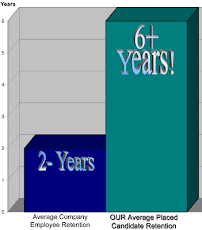We often forget to keep the mind in
shape. This is a great article worth sharing for both Managers and Engineers....
Discover the value of your mind
By Harvey Mackay
This time of year, we often start
contemplating New Year's resolutions. What's at the top of the list for many
people? Exercising and getting your body in shape. A noble thought, to be sure,
but I have an even better idea. How about exercising your mind so you can get
the most out of it?
Resolve to try something new to keep your brain challenged. Just like
doing the same physical exercises over and over again only works a specific
part of the body, doing the same mental work repeatedly tends to narrow your
focus and limit your potential.
Clearing the clutter and cobwebs out of
your mind is not complicated, but it does require some practice for those who
are constantly on overdrive. And you all know who you are!
One of my favorite books, "Think and
Grow Rich: A Black Choice" by Napoleon Hill and Dennis Kimbro, offers
wonderfully well-defined advice about caring for your mind: "Assume for a moment
that you have in your possession a million dollars in gold. Would you protect
it? Would you safeguard this treasure? Would you respect its value? Of course
you would. You might even hire bodyguards or install security devices to ensure
its safety.
"In comparison, your mind and
self-image are worth far more than one million dollars. They're priceless! Your
mind is the exclusive
source of all you will create spiritually, financially, or materially in your life.
Your level of joy, happiness, and peace of mind originates from one place -
your mind. Now ask yourself, do you protect your mind as carefully as you
protect your physical assets?"
Beyond the oft-repeated advice to read a
novel, take a walk, learn a new language, and so on, there are plenty of other
options that address long-term mind exercises.
A growing trend among business
professionals is meditation. Meditation clears and relaxes your mind, which can
have a significant impact on your physical health. And meditation doesn't
require any special equipment or clothing, just an open mind and a quiet
environment free of distractions. Get comfortable and clear your mind. Be
conscious of only your breathing. Don't direct your thoughts in any particular
direction; let them drift freely. How long you meditate is up to you.
This is a simplified description, and there
are many different meditation practices. Check online for coaching in a
technique that will help you.
Back at work, learning and remembering new
information can grow more difficult with every passing year. Here are some tips
to help you stay on top of the knowledge game:
- Focus on concentrating. Distractions
are the bane of any learning attempt. If you're attending a seminar or training
session, sit near the instructor and maintain eye contact. Let your
focused attention do the job.
- Say it out loud. Read aloud the
material you're trying to learn and repeat out loud the facts you want to
retain. This way, both your eyes and your ears are delivering information
to your brain.
- Tame frustration. If you're getting
frustrated over material you're trying to learn, remind yourself that
getting emotional will only hamper your ability to retain information.
Step back and take a break.
There was once a man who wanted to gain
power over his mind. He heard that there was a monk in Tibet who could make
this come true for him, and so the man traveled through the Himalayas. When the
man finally met the monk, the monk replied casually, "Yes, my friend,
attaining supernatural powers is simple. For this you merely need a mantra.
Just say "Buddham Sharanam Gachchami, Dhammam Sharanam Gachchami, Sangham
Sharanam Gachchami" three times - and whatever you do, do not think of
monkeys."
This was going to be a cinch, the man
thought. He wondered at the direction to not think of monkeys, asking himself,
"why would I think of monkeys?"
Then he sat down to try this new practice.
But as he chanted the first words of the mantra, the first thought that came to
his mind was "monkeys!" He tried chanting louder and imposing a more
powerful order to not think of monkeys. Still, all he could think of was
monkeys. In fact, he found that monkeys now roamed about his consciousness
everywhere.
The monk, seeing the struggle taking place,
smiled and said, "Whenever you try to force your mind to go in one
direction, you can be very sure it will always go the other way."
harveymackay.com














